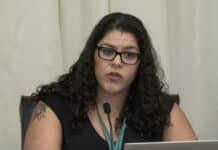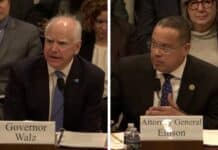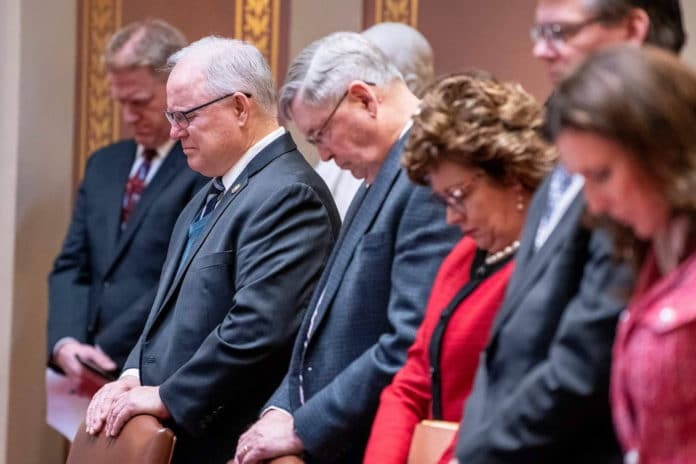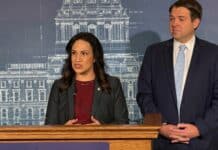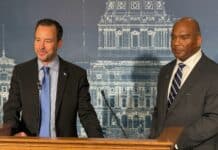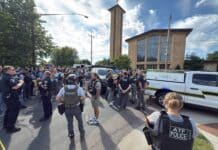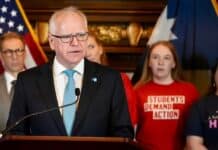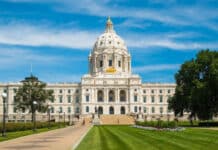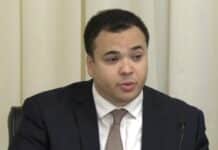Multiple chaplains have come forward after being reprimanded for praying in the name of “Jesus” at the Minnesota State Capitol.
For several years, Rev. Ilene Blanche had been invited as a guest chaplain to open up the legislative floor with a word of prayer. Blanche told Alpha News that after her prayer last Monday, Sen. Sandra Pappas, DFL-St. Paul, approached her and explained that it is forbidden to use certain names in prayer.
“I felt like my religious freedom had been violated. I felt like as a guest in the [Senate], that I had been treated disrespectfully and dishonorably and this should not be happening in our Capitol,” said Blanche.
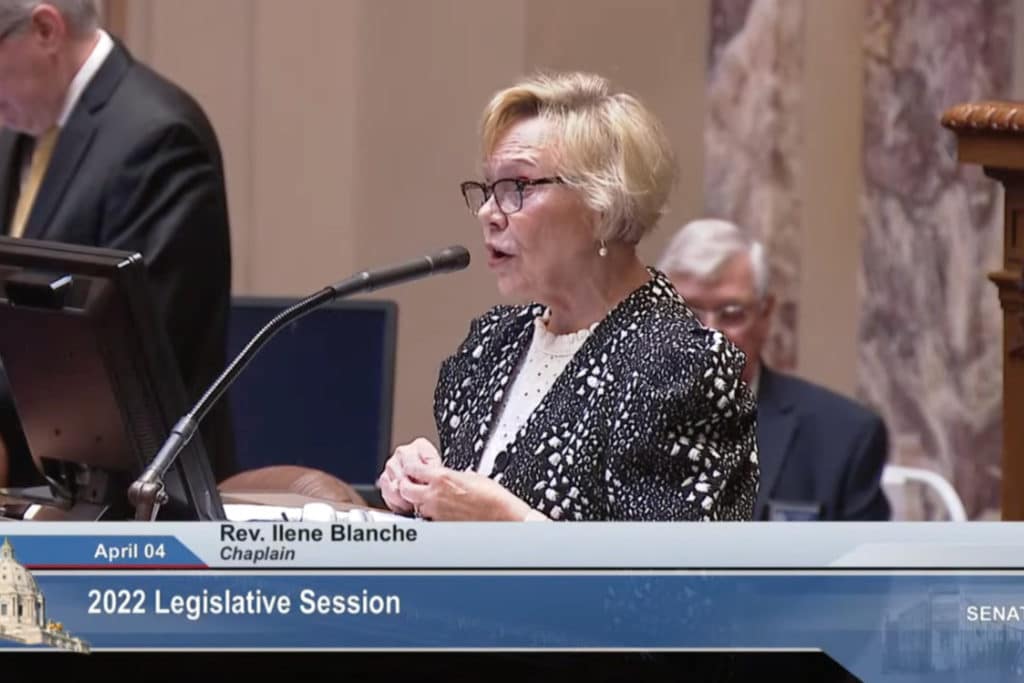
Senate guidelines for guest chaplains state:
“We ask you to be respectful of the religious diversity of the Senate (Christian, Jewish, and others) as you pray in your own tradition. Please keep your prayer brief, about a minute in length, and refrain from addressing any political issues.”
In response, Pappas told Alpha News she felt hurt that Blanche did not include her in the prayer because she is Jewish.
“I have not seen the latest guidelines from the current president, but when I was president and before that, we always asked that people be conscious that there are people with different religions in the body and that your prayer should be ecumenical,” said Pappas.
Guidelines for guest chaplains pursuant to House rules are different from the Senate. They state in part:
“We request your prayer be interfaith and ecumenical, while being respectful to the different religions in the House of Representatives and the state of Minnesota. Members of the House value this time and they want to feel included. Most guest chaplains are true to their traditions and convictions while avoiding language that leaves persons of other faiths feeling left out.”
Former Sen. Dan Hall told Alpha News that he was admonished more than 10 years ago when he read the “First Congressional Prayer” to open the Senate. Hall said he was openly rebuked by another sitting senator and Pappas, who was then the president of the Senate.
“I was told that inclusiveness overrode my First Amendment rights,” Hall said. “When Sen. [Paul] Gazelka became majority leader, we changed the Senate ‘rules’ to say that chaplains could pray in the tradition of their faith, which returned our First Amendment freedoms.”
Hall noted that opening up in prayer before session is part of the country’s heritage and people should honor God in the tradition of their faith.
Rev. Dale Witherington has also led prayer several times over the past decade in the Capitol rotunda but never as the guest chaplain in the House or Senate. He said he was invited by a state representative to lead prayer in the House and submitted a document explaining why he could use Jesus’ name.
“The rep who submitted my name took that document to the clerk to give to the House leadership and they did exactly what we thought was going to happen,” Witherington said. “In essence they said ‘we don’t care about your First Amendment rights because inclusivity trumps the First Amendment.'”
Witherington explained that the rules for prayer are different depending on who is in the majority. Witherington said Republicans will allow chaplains to pray according to their faith tradition, but Democrats prohibit the name of Jesus.
“If a Christian comes in and does pray and wraps up their prayer in the name of ‘Jesus’ … they’re told ‘that’s offensive’ or ‘you are not permitted to use that name here’ and the representative who recommended you, that representative is publicly excoriated or humiliated on the floor for bringing in a pastor who didn’t follow the rules,” Witherington explained. “The representative is not permitted to invite another pastor in for a period of time.”
Witherington believes the people of Minnesota need to see this as a significant issue if they want to have people in office who care about upholding the Constitution.
“They are perfectly free not to pray in the Senate but the Senate, it’s a public space and they’re specifically requested to be ecumenical and be inclusive of everyone and if they don’t want to do that, they don’t have to pray in the Senate,” Pappas replied.
Witherington thinks this points to a larger problem.
“The Democrats have been looking for ways to weed God out of their platform, out of politics and out of the public marketplace of ideas because it doesn’t fit their socialistic agenda, which includes godlessness,” he said. “Ultimately, they want government to replace God. That is what is happening in Minnesota and across the country.”
Minnesota Catholic Conference Executive Director Jason Adkins said there is a diversity of religions represented among legislators, so the request to offer non-sectarian prayers is not unreasonable.
“I think the general sense is that the prayer of the day should be a point of unity in a place that can be characterized by conflict and division,” Adkins said. “It is a time when legislators reflect on the gravity of their duties, their obligation to the common good, and one in which they recognize that they are ultimately bound by a higher authority.”

